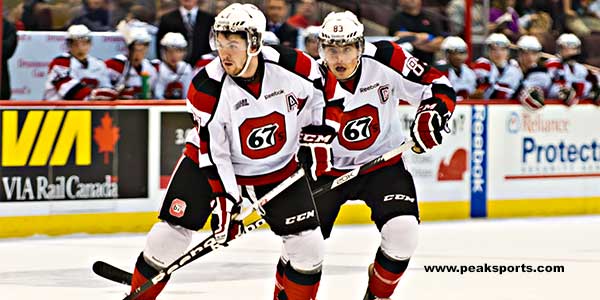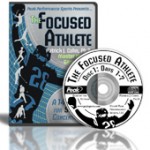
What Can you Control?
I work a lot with athletes on the concept “focus on what you can control, not what you cannot control.” That means you want to focus only on what you can control when performing.
Athletes get distracted when they focus on circumstances that are outside their direct control.
You (or your athletes) might focus on these uncontrollable factors:
-Bad officiating
-Poor weather conditions
-Difficult field, course, ice, or court conditions
-Other competitors’ behavior
-Who’s in the stands
-Opponents who are cheating
I’m working with an athlete right now that focuses too much on his playing time and when coach will put him into the game.
Can he control when he enters the game? No. Does he fret about it on the sidelines? Yes.
If he worries about this on the sidelines, then he’s not fully prepared to do his best when he does get the chance to enter the game – and he will enter the game at some point.
When you focus too much on circumstances outside of your direct control, you’re distracted at the least and maybe even frustrated.
In reality, the only things you can control are your reaction and your response to stuff that happens to you.
You can pay attention to how unfair a situation is or you can let go of what you cannot control and focus on the things you can do to improve your situation.
In baseball, if you strike out because of a tight strike zone, you can choose to be frustrated or get back in the game and focus on your next at-bat…
In tennis, if the weather is bitterly cold during a match, you can choose to be angry or you can focus on your serve or volley.
In hockey, if you get called for a penalty that you think was unfair, you can be upset with the ref or try to get your mind back into the game.
How you handle stuff beyond your control is a matter of focus… You can choose to let this distract you or you can choose to focus on how you respond to that circumstance.
What Can You Control?
Before you can learn how to focus on controlling the controllable, you need to gain awareness of the things you can and cannot control.
Make a list of all the things outside of your direct control including weather, playing conditions, other people, etc.
Consider circumstances that could occur in your personal life, training, competitions and other events that are outside of your direct control.
Next, start thinking about how you can respond to those circumstances in a more effective way.
How can you view those situations? Can you do anything about those circumstances?
Next, refocus on the game when you find yourself giving mental energy to those things outside of your control.
Engage with the play call. Focus on the next point. Refocus on your tactics or strategy.
By not giving energy to uncontrollable circumstances, you’ll focus your attention on the important performance cues for your game.
Related Sports Psychology Articles
- How Athletes Can Control Emotions
- Perfectionist Athletes Who Mentally Lose Control
- Control Your Emotions When Returning From an Injury
*Subscribe to The Sports Psychology Podcast on iTunes
*Subscribe to The Sports Psychology Podcast on Spotify
Download a free sports psychology report to improve your mental game!
Learn more about our one-on-one mental game coaching.
The Focused Athlete

It’s probably no secret that you have many opportunities to become distracted in sports. Athletes are bombarded with both internal and external distractions everyday in practice and competition. Focused athletes are able to get the most from their skills because they are more efficient with practice and more concentrated in competition. Athletes who lack focus let distractions run wild through their mind and don’t know how to adjust or refocus.
The Focused Athlete was developed for any level coach, parent, or junior to professional athlete who wants to improve performance and gain a competitive edge. It does not matter if you are a fledgling junior athlete; or a seasoned professional, plagued with distractions; or you just wanting to learn how to improve concentration…
“The Focused Athlete” is a complete system to teach you how to focus like a champion and harness the power of a zone focus every time you step on the playing field, court, track, or course in practice and games!
